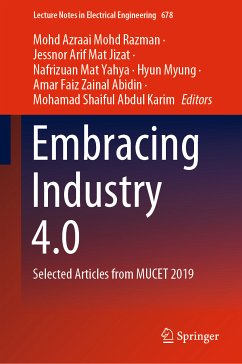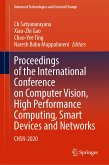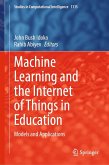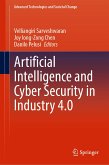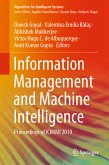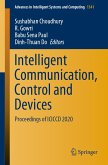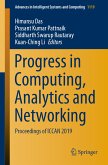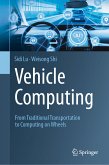Embracing Industry 4.0 (eBook, PDF)
Selected Articles from MUCET 2019
Redaktion: Mohd Razman, Mohd Azraai; Abdul Karim, Mohamad Shaiful; Zainal Abidin, Amar Faiz; Myung, Hyun; Mat Yahya, Nafrizuan; Mat Jizat, Jessnor Arif
97,95 €
97,95 €
inkl. MwSt.
Sofort per Download lieferbar

49 °P sammeln
97,95 €
Als Download kaufen

97,95 €
inkl. MwSt.
Sofort per Download lieferbar

49 °P sammeln
Jetzt verschenken
Alle Infos zum eBook verschenken
97,95 €
inkl. MwSt.
Sofort per Download lieferbar
Alle Infos zum eBook verschenken

49 °P sammeln
Embracing Industry 4.0 (eBook, PDF)
Selected Articles from MUCET 2019
Redaktion: Mohd Razman, Mohd Azraai; Abdul Karim, Mohamad Shaiful; Zainal Abidin, Amar Faiz; Myung, Hyun; Mat Yahya, Nafrizuan; Mat Jizat, Jessnor Arif
- Format: PDF
- Merkliste
- Auf die Merkliste
- Bewerten Bewerten
- Teilen
- Produkt teilen
- Produkterinnerung
- Produkterinnerung

Bitte loggen Sie sich zunächst in Ihr Kundenkonto ein oder registrieren Sie sich bei
bücher.de, um das eBook-Abo tolino select nutzen zu können.
Hier können Sie sich einloggen
Hier können Sie sich einloggen
Sie sind bereits eingeloggt. Klicken Sie auf 2. tolino select Abo, um fortzufahren.

Bitte loggen Sie sich zunächst in Ihr Kundenkonto ein oder registrieren Sie sich bei bücher.de, um das eBook-Abo tolino select nutzen zu können.
This book highlights selected articles from the electrical engineering track, with a focus on the latest trends in electrical and electronic engineering toward embracing Industry 4.0, as part of the Malaysian Technical Universities Conference on Engineering and Technology-MUCET 2019. The event brings together researchers and professionals in the fields of engineering, research, and technology, and provides a platform for future collaborations and exchanges.
- Geräte: PC
- ohne Kopierschutz
- eBook Hilfe
- Größe: 12.88MB
Andere Kunden interessierten sich auch für
![Proceedings of the International Conference on Computer Vision, High Performance Computing, Smart Devices and Networks (eBook, PDF) Proceedings of the International Conference on Computer Vision, High Performance Computing, Smart Devices and Networks (eBook, PDF)]() Proceedings of the International Conference on Computer Vision, High Performance Computing, Smart Devices and Networks (eBook, PDF)121,95 €
Proceedings of the International Conference on Computer Vision, High Performance Computing, Smart Devices and Networks (eBook, PDF)121,95 €![Machine Learning and the Internet of Things in Education (eBook, PDF) Machine Learning and the Internet of Things in Education (eBook, PDF)]() Machine Learning and the Internet of Things in Education (eBook, PDF)121,95 €
Machine Learning and the Internet of Things in Education (eBook, PDF)121,95 €![Artificial Intelligence and Cyber Security in Industry 4.0 (eBook, PDF) Artificial Intelligence and Cyber Security in Industry 4.0 (eBook, PDF)]() Artificial Intelligence and Cyber Security in Industry 4.0 (eBook, PDF)44,95 €
Artificial Intelligence and Cyber Security in Industry 4.0 (eBook, PDF)44,95 €![Information Management and Machine Intelligence (eBook, PDF) Information Management and Machine Intelligence (eBook, PDF)]() Information Management and Machine Intelligence (eBook, PDF)258,95 €
Information Management and Machine Intelligence (eBook, PDF)258,95 €![Intelligent Communication, Control and Devices (eBook, PDF) Intelligent Communication, Control and Devices (eBook, PDF)]() Intelligent Communication, Control and Devices (eBook, PDF)161,95 €
Intelligent Communication, Control and Devices (eBook, PDF)161,95 €![Progress in Computing, Analytics and Networking (eBook, PDF) Progress in Computing, Analytics and Networking (eBook, PDF)]() Progress in Computing, Analytics and Networking (eBook, PDF)113,95 €
Progress in Computing, Analytics and Networking (eBook, PDF)113,95 €![Vehicle Computing (eBook, PDF) Vehicle Computing (eBook, PDF)]() Sidi LuVehicle Computing (eBook, PDF)53,95 €
Sidi LuVehicle Computing (eBook, PDF)53,95 €-
-
-
This book highlights selected articles from the electrical engineering track, with a focus on the latest trends in electrical and electronic engineering toward embracing Industry 4.0, as part of the Malaysian Technical Universities Conference on Engineering and Technology-MUCET 2019. The event brings together researchers and professionals in the fields of engineering, research, and technology, and provides a platform for future collaborations and exchanges.
Dieser Download kann aus rechtlichen Gründen nur mit Rechnungsadresse in A, B, BG, CY, CZ, D, DK, EW, E, FIN, F, GR, HR, H, IRL, I, LT, L, LR, M, NL, PL, P, R, S, SLO, SK ausgeliefert werden.
Produktdetails
- Produktdetails
- Verlag: Springer Nature Singapore
- Seitenzahl: 289
- Erscheinungstermin: 8. Juli 2020
- Englisch
- ISBN-13: 9789811560255
- Artikelnr.: 59807102
- Verlag: Springer Nature Singapore
- Seitenzahl: 289
- Erscheinungstermin: 8. Juli 2020
- Englisch
- ISBN-13: 9789811560255
- Artikelnr.: 59807102
- Herstellerkennzeichnung Die Herstellerinformationen sind derzeit nicht verfügbar.
Dr Mohd Azraai Mohd Razman received his first degree from the University of Sheffield, UK, in Mechatronics Engineering. He then obtained his M.Eng and Ph.D. from the Universiti Malaysia Pahang (UMP) along with a visiting Ph.D. from the University of Padova, Italy. His research interests include optimisation, control systems, instrumentation in aquaculture and agriculture, sports engineering and machine learning. Mr Jessnor Arif Mat Jizat graduated as a Diplomingenieur (FH) in Mechatronics Engineering from the Hochschule Karlsruhe Technik and Wirtschaft, Germany. He obtained his M.Eng. (Manufacturing) from the UMP and is currently pursuing his Ph.D. studies in image processing and machine learning. His research interests include robotics vision, sports engineering, and autonomous vehicles. Dr Nafrizuan Mat Yahya graduated from the Universiti Sains Malaysia with a B.E. in Manufacturing Engineering with Management in 2004. He received his M.Eng. from the UMP in 2009 and subsequently studied Automatic Control & Systems Engineering at the University of Sheffield, UK. Currently the Head of the Cybernetics and Systems Engineering Laboratory (CSEL), his research interests include computational intelligence, algorithm development, and control systems optimisation. Prof Hyun Myung received his B.S., M.S. and Ph.D. degrees from the Korea Advanced Institute of Science and Technology (KAIST), Daejeon, South Korea, in 1992, 1994, and 1998, respectively, all in Electrical Engineering. Currently a Professor at the School of Electrical Engineering, his research interests include structural health monitoring using robotics, artificial intelligence, simultaneous localisation and mapping, robot navigation and machine learning. Mr Amar Faiz Zainal Abidin received his first degree from the University of Nottingham in Electrical and Electronics Engineering. He subsequently obtained his M.Sc. in Computer Vision from the University of Burgundy, France, and his M.Eng. from the Universiti Teknologi Malaysia. Currently a lecturer at the Universiti Teknikal Malaysia Melaka, he is an active researcher in the fields of optimisation, computational intelligence, and computer vision. Dr Mohamad Shaiful Abdul Karim received his B. Eng. (Electrical and Electronics), M.Eng. and D. Eng. degrees from Ritsumeikan University, Japan in 2011, 2013 and 2016, respectively. In 2016, he joined the UMP as a senior lecturer at the College of Engineering and is currently pursuing research on microwave engineering, communication and biomedical medical devices.
An Adaptive Self-Assessment Model for Improving Student Performance in Language Learning using Massive Open Online Course (MOOC).- Assessment on Average Participation Versus Bialek's Methods for Transmission Usage Evaluation Scheme.- Field-effect Transistor-based Biosensor Optimization: Single Versus Array Silicon Nanowires Configuration.- Top-Down Fabrication of Silicon Nanogap for Detection of Dengue Virus (DENV).- Design and Performance Analysis of IoT Based Sensor System using LoRa.- A PSPT-MAC mechanism for congestion avoidance in Wireless Body Area Network.- A Planar Slotted RCS based UWB RFID Tag on A PCB and A Flexible Substrate for Packaging Application.- Design and Analysis of Automated Inspection System for Relays Fault Detection.- Visible Light Communication-Based Indoor Notification System for Blind People.
An Adaptive Self-Assessment Model for Improving Student Performance in Language Learning using Massive Open Online Course (MOOC).- Assessment on Average Participation Versus Bialek's Methods for Transmission Usage Evaluation Scheme.- Field-effect Transistor-based Biosensor Optimization: Single Versus Array Silicon Nanowires Configuration.- Top-Down Fabrication of Silicon Nanogap for Detection of Dengue Virus (DENV).- Design and Performance Analysis of IoT Based Sensor System using LoRa.- A PSPT-MAC mechanism for congestion avoidance in Wireless Body Area Network.- A Planar Slotted RCS based UWB RFID Tag on A PCB and A Flexible Substrate for Packaging Application.- Design and Analysis of Automated Inspection System for Relays Fault Detection.- Visible Light Communication-Based Indoor Notification System for Blind People.
